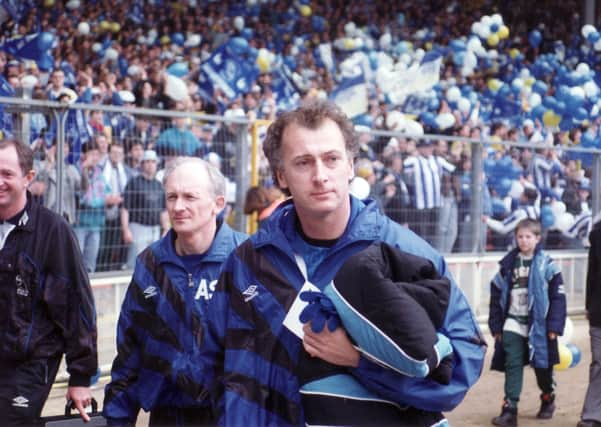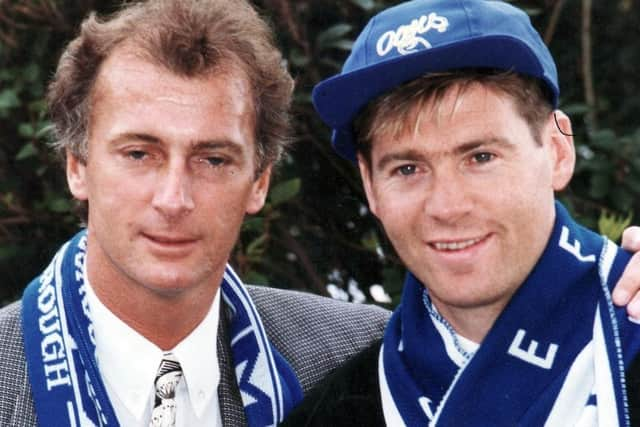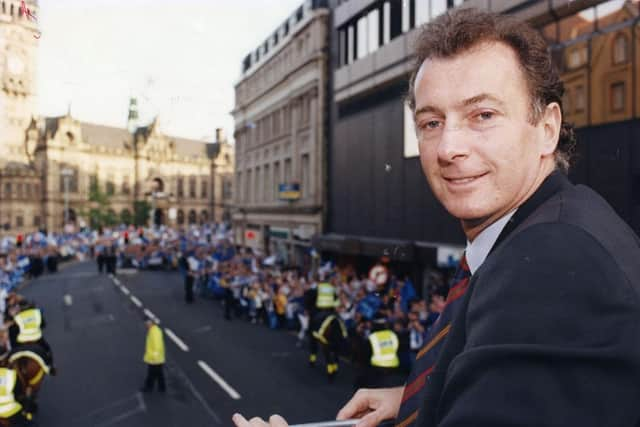Sheffield Wednesday never recovered since 1995 sacking of Trevor Francis


What is not open to debate is that Sheffield Wednesday’s fortunes have taken a significant downturn since the Hillsborough hierarchy took the decision to sack Trevor Francis from his position as Owls manager 25 years ago this week. Some would say they have never recovered.
A class act in his playing days, Francis maintained his dignity and kept his counsel after being relieved of his duties, paying the price after Wednesday finished in 13th place in the Premier League in 1994-95.
Advertisement
Hide AdAdvertisement
Hide AdIt was what happened before which perhaps proved his undoing in creating rising expectation levels after the success of his first three seasons in charge.


But surely in that respect, a dip would have been tolerated by a more sympathetic board.
Wednesday were in eighth in early February, 1995 after a 3-1 home win over Arsenal – but Francis would find himself out of work less than three-and-a-half months later after a run of three victories in 15 matches.
As Francis would later reveal, much later, his dismissal was the ‘worst-kept secret in football’ and finally arrived on FA Cup final day in 1995 when Owls chairman Dave Richards handed him his cards, two years to the day since the Devonian led out Wednesday in a final replay at Wembley.
Advertisement
Hide AdAdvertisement
Hide AdFrancis – certainly to most observers in football – was justifiably entitled to think that he deserved better.


Opening up in an interview many years later, the former Owls chief said: “It wasn’t a shock at all when I left Wednesday.
“It was the worst-kept secret in football. With almost three months of the season remaining, most people seemed to think I would be moving on, I was going to be sacked at the end of the season.
“But I had to act with as much dignity as I possibly could, having enjoyed my time there so much as a player and as manager and my own personal satisfaction. It was important that I made the team finish the season in a reasonably healthy position.
Advertisement
Hide AdAdvertisement
Hide Ad“Whilst it was no surprise at the end of the season when I left, it was still a huge disappointment that I wasn’t backed by the directors to give me the opportunity to change things.”
Francis’s first experience of management ended up unceremoniously, when he was sacked as player-manager at QPR in late 1989 with a regimented Italian-style training regime that he tried to get players to buy into ultimately proving his downfall.
Wiser for the experience, Francis – one of just a handful of Englishmen to flourish in Serie A during his time with Sampdoria in the Eighties – would be more pragmatic during his time in charge at Hillsborough.
After the success of the Ron Atkinson era, Francis sensibly adopted the attitude of ‘if it ain’t broke, don’t fix it’.
Advertisement
Hide AdAdvertisement
Hide AdA fine side was already taking shape and the new Owls manager would significantly add to it over time with the signings of Chris Waddle, Des Walker, Paul Warhurst and Dan Petrescu.
The Owls finished third in his first season and were still in with a shout of the title going into the penultimate weekend of 1991-92.
They would famously reach both domestic Cup finals in the following season – when the Owls stepped out at Wembley four times in 47 days.
Seventh-placed finishes in 1992-93 and 1993-94 displayed consistency in terms of their Premier League performances at a time when the likes of Everton, Manchester City, Chelsea and Tottenham largely toiled.
Advertisement
Hide AdAdvertisement
Hide AdBut with the likes of Waddle, Mark Bright and Nigel Pearson not getting any younger, Francis had to contemplate a gradual rebuild and that is where his earlier golden touch in the transfer market deserted him.
The acquisitions of Andy Sinton, Klas Ingesson, Andy Pearce and Guy Whittingham, among others, failed to pay off – although the law of averages states that no manager gets every transfer dealing right.
Given the fact that Francis’s successor, David Pleat, would fail to maintain Wednesday’s standing as one of the leading clubs in English football, history would suggest that he was deserving of a touch more time.
Unfortunately for Francis, that disappointing final three months of the 1994-95 campaign provided his doubters with all the ammunition that they required to demand change at the end of the season.
Advertisement
Hide AdAdvertisement
Hide AdFrom Boxing Day, 1994 to early February, 1995, Wednesday were unbeaten in eight league matches, but a run of nine defeats in their next 15 top-flight games proved more unpalatable.
The nadir was reached in a 7-1 home loss to Nottingham Forest.
There were rumblings of discontent from sections of Wednesdayites, but there was perspective from others.
Francis added: “I think I had proved over the three years that I had made some good signings and kept us in a good position but I think that probably the directors of the club felt the players I was looking to change were probably good enough to continue for a little longer.
Advertisement
Hide AdAdvertisement
Hide Ad“I think my decision was proved to be right because the following year David Pleat came in and I remember David ringing me asking my thoughts and picking my brain on what I had left him and he continued with the same lot of players more or less.
“He brought in one or two of his own, obviously, but most of them were my players, it was a very poor season.”